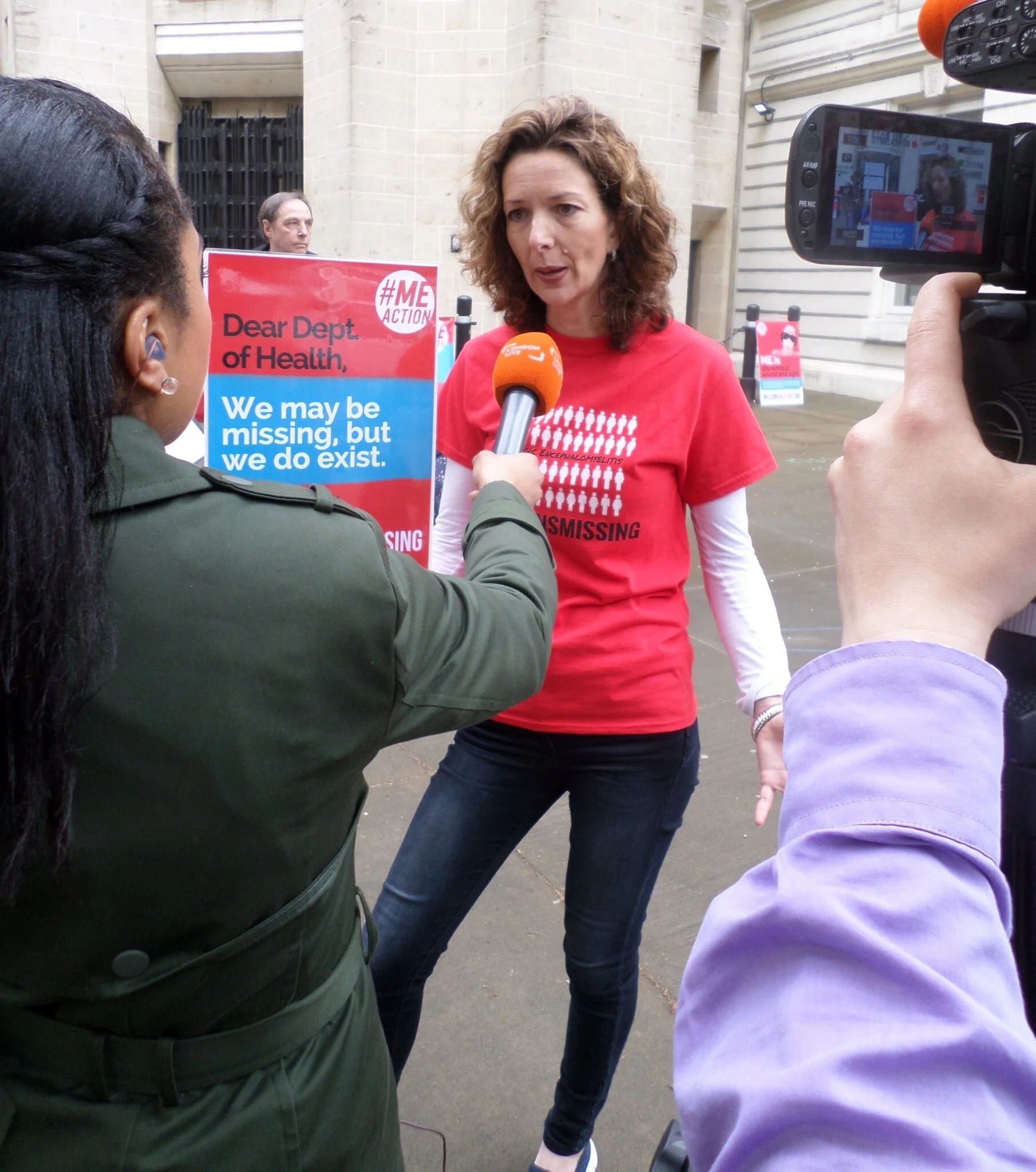After 13 years of recommending graded exercise therapy (GET) to people with Myalgic Encephalomyelitis (ME), a new draft guideline on ME/CFS from the National Institute for Health and Care Excellence (NICE) advises against “any programme based on fixed incremental increases in physical activity or exercise, for example graded exercise therapy”.
#MEAction UK spokesperson, Sian Leary, who has ME herself, said: “A national institution recognising there is no treatment or cure for ME represents a paradigm shift in the UK. This guideline is an improvement, but also highlights just how far we have to go. Removing graded exercise therapy from the guideline should end the institutional harm of people with ME, and work to ensure those at risk of developing ME after having Covid-19 are not made worse. Now, health professionals must do the crucial work of providing appropriate care for people with ME, and research funders must set about expediting research into this devastating disease.”
As increasing numbers of people with long term symptoms after Covid-19 are being diagnosed with ME, this U-turn comes at a vitally important time. However, it is too late for the thousands of people with ME who have been harmed by this treatment over the past 13 years.
When 16-year-old Cherry from North London began the treatment prescribed for her ME in 2013, she was able to walk to her local hospital’s Fatigue Clinic. Her health significantly worsened after six months of graded exercise therapy until she became bed bound and had increasing neurological symptoms. Cherry’s deterioration after undergoing GET is a common experience in the ME community. An analysis of over 18,000 patient responses to surveys on management of ME symptoms over a five year period reported that 54%-74% deteriorated following GET. Research has shown that people with ME who were given a period of enforced rest from onset had the best prognosis.
Long Covid patients are saved from the harm suffered by people with ME
Jaime Seltzer, Director of Scientific and Medical Outreach at #MEAction said “There is strong evidence that many people who have long Covid will go on to meet the diagnostic criteria for ME. Regardless of their ultimate diagnosis, it is vital that people with long Covid listen to their bodies and pace their activity.”
Dr Amy Small, a GP in Edinburgh who became ill early on in the pandemic, commented, “Having always been a very active person prior to long Covid, running several times a week and doing other exercise, I have found it very difficult to come to terms with the post-exertional malaise I suffer now. I have, however, learnt, both from the ME community and the long Covid community that GET is potentially very damaging. It’s not in my nature not to ‘push’ myself but I’ve learnt that the key to recovery is through pacing. Pacing isn’t as straightforward as it would seem but I have gradually managed to pick up my activity levels slowly over the last few months with adequate pacing and rest.”
People with ME are expressing deep relief that long Covid patients with symptoms of ME will not be subjected to graded exercise therapy, which has harmed so many people with ME. Many long Covid patients are reporting ME-like symptoms, including post-exertional malaise, which is the hallmark symptom of ME.
Professor Brendan Delaney, Chair in Medical Informatics and Decision Making at Imperial University, who has long Covid, explains: “Graded exercise therapy assumes that fatigue in ME is caused by a maladaptive behavioural response that can be ‘pushed through’. Clinical studies have failed to account adequately for post-exercise malaise, where ME patients worsen significantly if they ‘push through’, something I have seen regularly as a GP. In the context of long Covid, many patients, including myself, suffer similar relapses of fever and muscle pains if we attempt to exercise (including cognitive tasks) outside our capacity. NICE will need to explore whether there are common biological determinants between some long Covid patients and ME, and suggest research and therapeutic avenues that may benefit both groups of patients.”
Post-exertional malaise (PEM), the cardinal symptom of ME, is defined as a “worsening of symptoms that can follow minimal cognitive, physical, emotional or social activity, or activity that could previously be tolerated. Symptoms typically worsen 12 to 48 hours after activity and can last for days or even weeks.” NICE is now recommending that this feature is renamed post-exertional symptom exacerbation (PESE).
What is the evidence that graded exercise is harmful?
Accumulating scientific evidence has demonstrated that continuing to recommend exercise therapy can not only make symptoms worse, but also that pacing is the most helpful option currently available. Something those with ME have been able to help long Covid sufferers learn about. In a recent survey by Oxford Brookes University, about 80% of patients reported deterioration after GET, and this effect was even worse when receiving both GET and CBT together.
Jaime Seltzer, “While graded exercise may be useful in patients who are deconditioned after surgery or a severe illness, graded exercise does not address the metabolic changes and atypical reactions to activity that lead to symptoms in people with ME. Studies that follow patients long-term show no improvement after GET, and patients often report serious deterioration. Only wishful thinking or cost-saving could compel anyone to believe that exercise and positivity could cure a complex chronic illness like ME.”
FURTHER INFORMATION
#MEAction UK is an organisation of patients, carers and allies fighting for recognition and research for ME.
Read the draft guideline: http://www.meaction.net/wp-content/uploads/2020/11/NICE-MECFS-guideline-for-consultation.pdf
NHS Your Covid Recovery advises exercise: https://www.yourcovidrecovery.nhs.uk/your-wellbeing/getting-moving-again/

